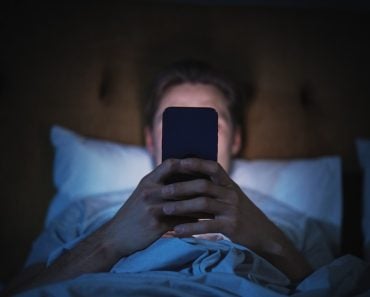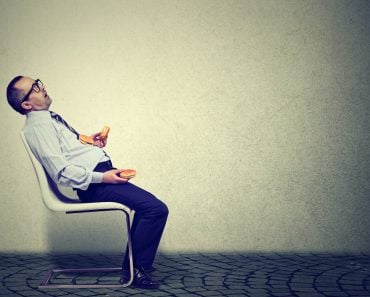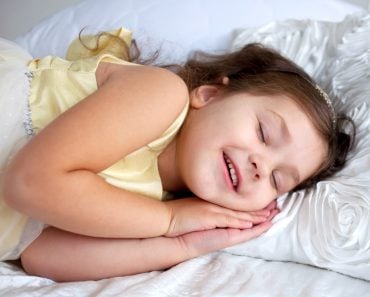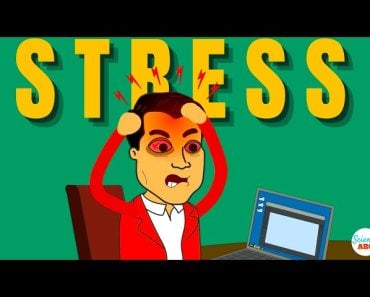Table of Contents (click to expand)
The most likely explanation for feeling tired all day but wired at night could be caused by a disrupted circadian rhythm aka your biological clock. Stress, shift work, and your chronotype can all disrupt your circadian rhythm.
We all know this feeling.
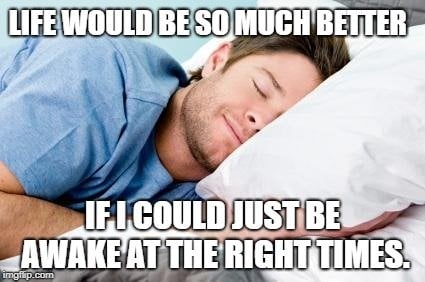
You dragged your feet around the office all day, barely able to keep your eyes open through interminable meetings, and sluggishly made your way home through traffic. Yet, a few hours later, once you settled back into domestic bliss, you find yourself wide awake instead of in the relaxing embrace of sleep.
How is it possible for you to feel exhausted all day, but once the “right” time for sleep arrives, your body decides that it’s full of energy? To get to the bottom of this, you first need to understand sleep.
Recommended Video for you:
What Is Circadian Rhythm?
We all have an internal alarm that tells us both when to wake up and when it’s time to sleep. This internal clock is called your circadian rhythm.
Your circadian rhythm is the 24-hour clock, helping your body and mind fluctuate between alertness and tiredness. Your body can’t operate every hour of the day; you need time to rest and recuperate from the strains of the day.
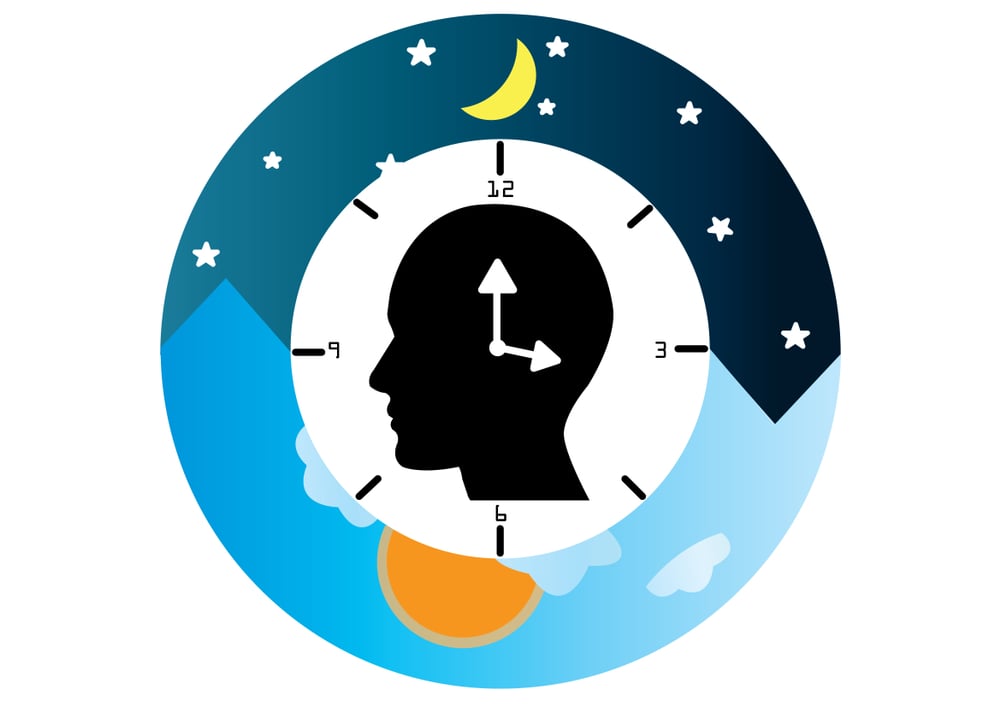
A few parts of the brain control the circadian rhythm, particularly the hypothalamus. A small part of the hypothalamus called the suprachiasmatic nucleus, or SCN for short, receives input from the environment, such as the time of day. The SCN then sends signals to different parts of the brain to release or not release certain hormones. Hormones and their amount change throughout the day.
Melatonin is a hormone released near the end of the day that brings about sleepiness, and it is only secreted when the body senses that the sun’s gone down.
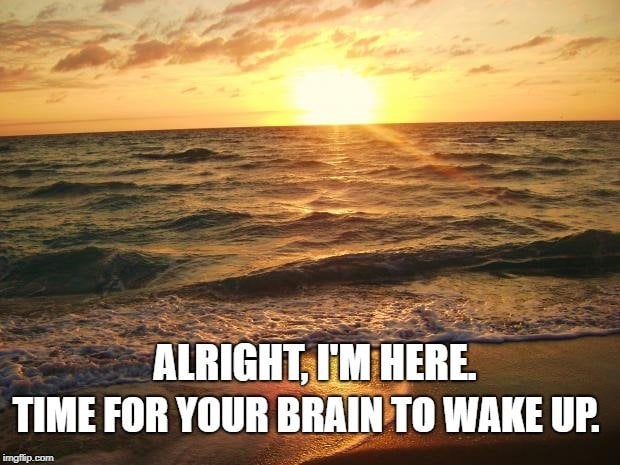
Cortisol, the infamous stress hormone, is also a part of the circadian rhythm. Your cortisol levels begin to increase as you wake up and then dip towards the end of the day.
If you take good care of your sleep habits, you shouldn’t have any problem regulating your circadian rhythm. But certain things can affect your sleep patterns.
Also Read: Why Do We Wake Up At Roughly The Same Time Every Morning?
Disrupted Circadian Rhythm
Chronically disrupted circadian rhythms have even been linked to obesity, depression, diabetes, and a higher susceptibility to chronic disease. These conditions can, in turn, ruin your sleep, a vicious cycle.
In other words, ensuring your body maintains its normal cycles is extremely important. When you fail to do that, however, you are likely to experience the frustrating situation at the heart of this article.
A disrupted circadian rhythm can mean a few things when it comes to sleep, such as how fast you fall asleep. This is called sleep latency. People usually fall asleep within 10 to 20 minutes of putting their heads on the pillow. If you’re still tossing in your bed after 20 minutes, that means there’s something amiss. Another metric is fitfully sleeping or waking up in the middle of the night.
A 2011 Sleep in America poll found that 77% of adolescents had sleep problems, with 59% waking up groggy and still feeling tired, while 42% found it difficult to fall asleep.
There are a few things that can keep us from getting the ‘zzzz’ we need.
Stress
It’s safe to say that stress is a fact of life. But it can negatively affect your sleep. The night before an important presentation, you might find yourself too psyched up to sleep. Something similar happens if you have outstanding work and the deadline is inching closer.
A 2004 study found that the thought of waking up in the morning for work can reduce the quality of sleep. The adults they tested had low amounts of slow-wave sleep when they had apprehensions about going to work the next morning.
Slow-wave sleep, or deep sleep, is critical for a restful night’s sleep. Getting low amounts of slow-wave sleep can worsen stress and anxiety the next day.
Stress is good for you. There are times in our lives when we need the stress hormone cortisol to give us a push to action. But cortisol naturally decreases during the night, just as you fall asleep. Chronic stress can lead to higher-than-normal levels of cortisol. This can severely impact sleep.
Sleep is often disturbed in those who have disorders related to their adrenal glands or the part of the brain that decodes stress.
Stress during the day can also lead to something called revenge bedtime procrastination. The term originated in China to describe workers delaying sleep so that they can devote time to activities they enjoy.
During the day, when you have little control over your time, you try to extend the little time you have left at the end of the day for yourself. This, though, comes at the expense of sleep.
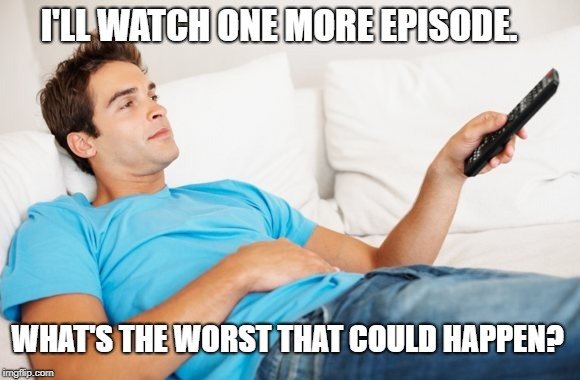
Sleeping Schedule
Sleep habits are extremely important when it comes to maintaining normal tired/wakeful states.
We often see this with shift workers. Workers who frequently work at night, such as nurses, usually suffer from erratic sleep.
Relying on stimulants, such as caffeine or nicotine, can also affect how you feel in the evenings and mornings. Avoiding dependence on chemicals to alter your wakefulness will help your body solidify and retain its normal, healthy rhythms. Drinking alcohol in the evening to relax can also affect your alertness in the morning, i.e., you may have a hangover.
Chronotype And Night Owls
I assumed above that you, the reader, must be someone who prefers the morning. But waking up in the morning is what’s socially acceptable. Some of us could be night owls, and in that case, your wakefulness in the night might be normal for you.
Morning larks and night owls are names we’ve given to different chronotypes. A chronotype is a measure of the time of the day someone feels more awake or sleepy. A morning lark is a morning person, and the opposite is true for a night owl.
Most teenagers are “night owls” thanks to their pubescent biology. Children and the elderly are more likely to wake up early in the morning. But each of us falls on a spectrum. Some of us like to wake up earlier than others. You might feel most active between 6 and 9 am, but your friend finds that they’re most alert after 6 pm.
There is a concept called social jetlag that could clarify things for you. Social jetlag describes the discrepancy between your circadian rhythm and social convention. You’re more active later in the evening, but you must wake up early for work. Then, on your days off, you’ll follow your natural circadian rhythm, which might be to sleep in late and stay up late. This leads to social jetlag.
Also Read: Why Do Teenagers Always Sleep Late?
Lastly, Turn On The Cooler
But, if you still can’t sleep, it might be that your environment is uncomfortable. To fall asleep, we need cool temperatures and for many of us, a weighted blanket to add comfort. Maybe clean your sheets and declutter your room and see how that helps.
References (click to expand)
- Taylor, B. J., & Hasler, B. P. (2018, July 23). Chronotype and Mental Health: Recent Advances. Current Psychiatry Reports. Springer Science and Business Media LLC.
- Hale, L., & Guan, S. (2015, June). Screen time and sleep among school-aged children and adolescents: A systematic literature review. Sleep Medicine Reviews. Elsevier BV.
- Gao, C., & Scullin, M. K. (2020, September). Sleep health early in the coronavirus disease 2019 (COVID-19) outbreak in the United States: integrating longitudinal, cross-sectional, and retrospective recall data. Sleep Medicine. Elsevier BV.
- Valck, E. D., Cluydts, R., & Pirrera, S. (2004, November 22). Effect of cognitive arousal on sleep latency, somatic and cortical arousal following partial sleep deprivation. Journal of Sleep Research. Wiley.
- Troynikov, O., Watson, C. G., & Nawaz, N. (2018, December). Sleep environments and sleep physiology: A review. Journal of Thermal Biology. Elsevier BV.
- Wittmann, M., Dinich, J., Merrow, M., & Roenneberg, T. (2006, January). Social Jetlag: Misalignment of Biological and Social Time. Chronobiology International. Informa UK Limited.
- Kecklund, G., & Axelsson, J. (2016, November 1). Health consequences of shift work and insufficient sleep. Bmj. BMJ.
- The psychology behind 'revenge bedtime procrastination'.
- Vgontzas, A. N., Papanicolaou, D. A., Bixler, E. O., Hopper, K., Lotsikas, A., Lin, H.-M., … Chrousos, G. P. (2000, March 1). Sleep Apnea and Daytime Sleepiness and Fatigue: Relation to Visceral Obesity, Insulin Resistance, and Hypercytokinemia. The Journal of Clinical Endocrinology & Metabolism. The Endocrine Society.

